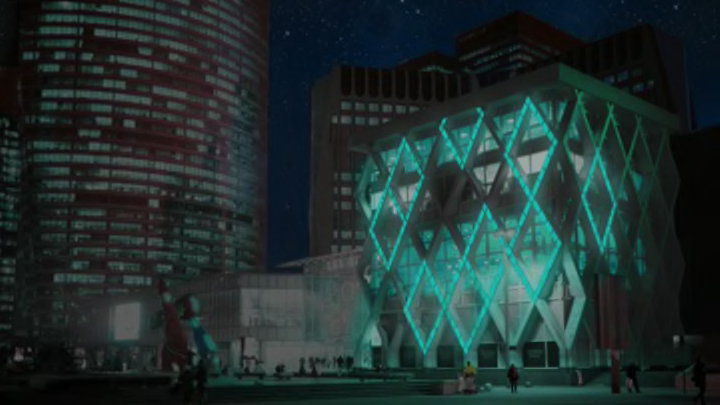French Start-Up Releases Bacteria-Powered Lights

In a world of increasingly scarce resources, viable power alternatives are at a premium. A Paris-based company called Glowee has seized this opportunity, creating a line of lights powered exclusively by bioluminescent bacteria.
“Our goal is to change the way we produce and use light,” Glowee founder Sandra Rey told New Scientist. “We want to offer a global solution that will reduce the 19 per cent of electricity consumption used to produce light.”
Glowee is not the first bioluminescent lamp producer on the market; Dino Pet is a dinosaur-shaped glass lamp filled with glowing dinoflagellates. But Dino Pet is a fun work of art, whereas Glowee inventors envision their product replacing traditional light bulbs in storefronts, parks, subways, and other public spaces.
Glowee’s “magic light,” as it’s called on the company website, is produced by the bacterium Aliivibrio fischeri. In the natural world, A. fischeri is best known for its relationship with the adorable, glowing bobtail squid.
Glowee scientists cultivate the bacteria in the lab in a nutrient-rich gel. The gel is then deposited in glass cases much like traditional lightbulbs, except these bulbs can be any shape at all.
Beautiful though it may be, the bacterium is not especially long-lived, which presents an obvious hurdle for the lamp maker. By manipulating the gel, Glowee team members have been able to increase the duration of the glow from a few seconds to three days. It’s a huge improvement, but Glowee’s got a long way to go to stack up against long-lasting electric bulbs.
They’re now experimenting with genetic engineering to breed hardier bacteria with a brighter glow. They’re also building in a molecular on/off switch, which could enable the bacteria to conserve energy during the day and glow only at night.
So is it practical to rely on live organisms to produce commercial levels of light? That remains to be seen. But it’s definitely cool.
All images courtesy of Glowee.
[h/t New Scientist]